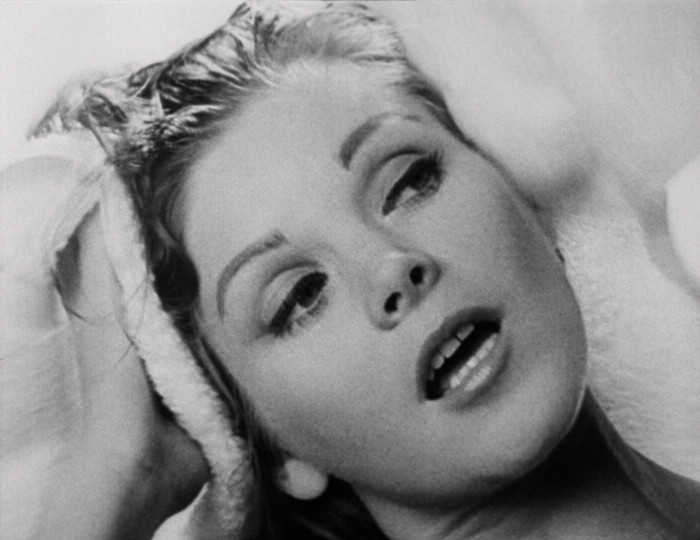.
German artist Peter Roehr died in 1968, aged just 23. During his tragically brief career, he produced a remarkable body of works employing appropriation and repetition. Bridging the preoccupations of pop and minimalism, his film montages (all 1965) repeat short excerpts of found footage: shampoo commercials, wrestlers, cars on highways, petrol-station signs. Roehr wrote: ‘I change material by repeating it unchanged. The message is the behaviour of the material in response to the frequency of its repetition.’ Holger Liebs says, ‘His contemporaries did not immediately recognise the quality of Roehr’s work. Roehr’s series, with their dogged, tautological order, were in many ways so much in step with the trends of their times—among them the aesthetics of information theory, structuralism and minimal art—that their peculiarity long remained overlooked.’ In his montages, Roehr’s generic anonymous source clips take on a new affective scale; the contingent and banal becoming definitive, monumental, even mythic. On the one hand, the montages are frustrating, suggesting that time is attenuated or stuck; on the other hand, they foreground the pleasure of sheer repetition. Peter Roehr: Film Montages, City Gallery, 16 March–27 June 2015. (Here’s Tim Carballis’s review.)
